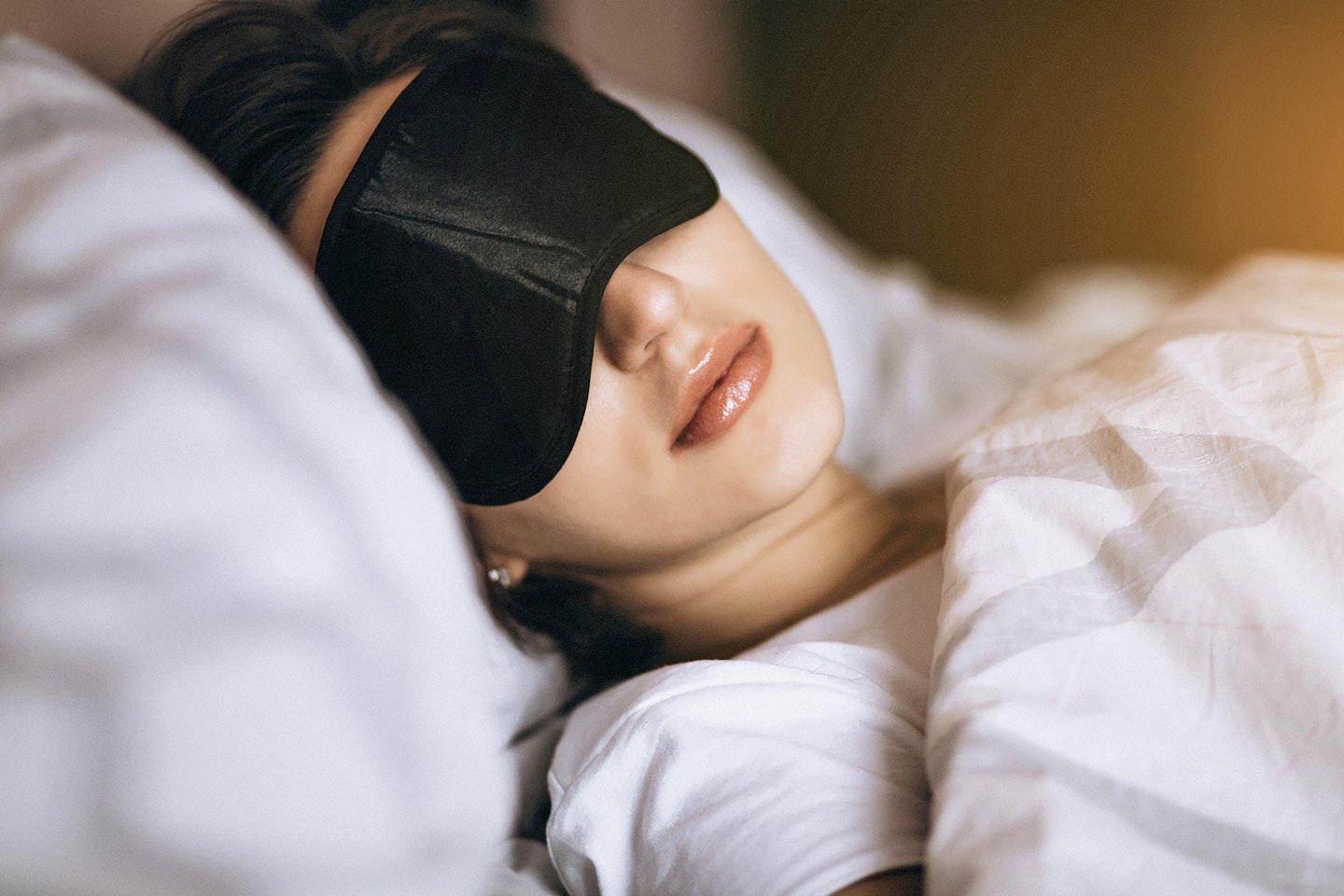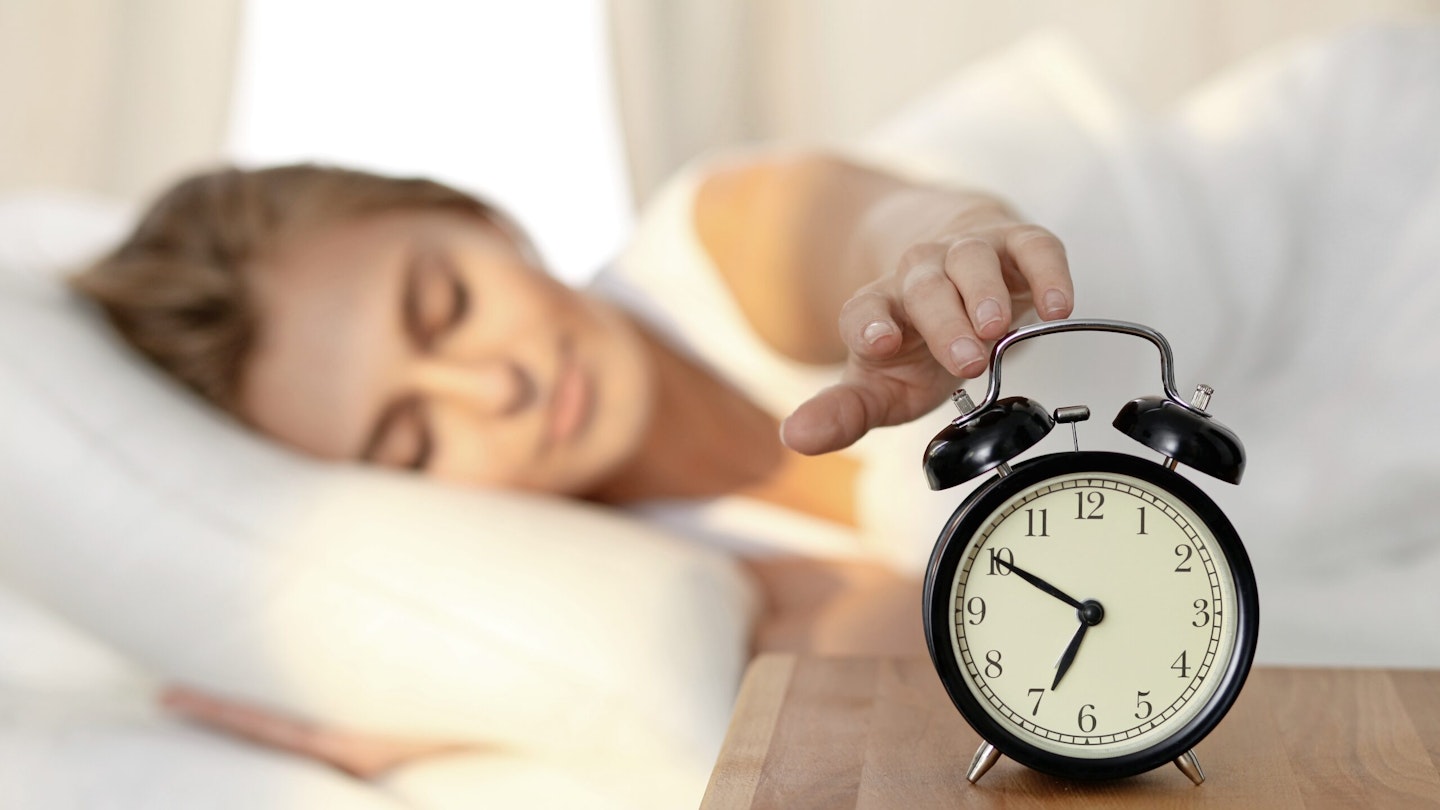Small tweaks to your daily routine can make a big difference to the quality and quantity of your sleep, especially if you struggle to switch off. Here, our experts give their very best advice …
Kickstart your body clock
A lie-in might seem tempting after a restless night, but our body clocks thrive on routine. Sleep practitioner Kerry Davies suggests setting your alarm for the same time every day and sticking to the same bedtime too, even on the weekend. “If you do this continuously, your body learns when it’s time to wake up and when it’s time to go to sleep,” says Kerry. “It regulates your body clock, which ultimately makes it easier to fall asleep and improves quality of sleep.”

See the light
Even on a cloudy morning, try to get outside for at least 15 minutes. “Light helps stimulate your body clock, making you feel more alert,” says James Wilson. “This is especially true in winter, when your body wonders why you’re getting up in the dark. I suggest using a sunshine alarm clock too, which has a light that rises like the sun and pulls your body out of sleep. You can also use a light box as you eat breakfast, to help ease your body into daytime mode.”

**
Resist a nap**
“Sleeping during the day throws your natural sleep cycle out of balance,” says Kerry. “It’s normal to feel groggy between 2pm and 4pm, because we have a spike of the sleep hormone melatonin. But instead of snoozing, go for a walk. Movement wakes you up.”
Eat regularly
Sticking to a regular food routine helps regulate your body clock. “If your body receives consistent messages about what it’s doing, and when, that then helps when it comes to sleep,” says Kerry. “Avoid caffeine from the early afternoon.”

Avoid evening exercise
An intense evening workout stimulates your nervous system and heart rate, which can lead to interrupted sleep. “Exercise is great for promoting sleep, but working out in the three hours before bedtime can have the reverse effect,” says James.
Wind down
Kerry says it’s essential to wind down for an hour before bed. “Switch off your phone and TV, because they emit blue light, which stimulates your body clock,” she says. “Instead, do something relaxing, like taking a hot bath, trying some adult colouring, reading, a jigsaw puzzle or meditation. After three nights you’ll feel a drastic improvement.”
Have a bedtime snack
Many of us drink wine to relax, but alcohol impacts our sleep. “It’s best avoided before bed,” says Kerry. “Instead, have a small bowl of porridge or a milky drink an hour before bed. These foods contain tryptophan, an amino acid which can help you sleep.”
Get the basics right
“We spend more time in bed than anywhere else, yet we often don’t buy our mattresses wisely,” says James. “Invest in a comfortable mattress that suits you. If you and your partner have different needs, consider buying a mattress that’s firm on one side and softer on the other.”
Reduce your core temperature
Ever wondered why a warm bath makes you feel sleepy? It’s because your body cools down afterwards, and reducing your core temperature tricks your body into night-time mode. “Have a warm bath or shower a few minutes before bed, or rest your bare feet on a lukewarm hot water bottle,” suggests James. “It’ll make your core temperature rise, then drop.”
Soothe your vivid dreams
During the pandemic, many people have reported powerful dreams, which Kerry says may be due to our heightened emotions. “The vivid dreams are probably because we’re processing more emotions while asleep,” she explains. “Winding down before bed will calm your mind, and playing white noise in your bedroom can help too.”

Breathe yourself calm
In these anxiety-ridden times, you might feel you’re waking up more at night. “It’s normal to have a big chunk of sleep, then experience partial awakenings every 90 minutes or so,” says Kerry. “But if you’re waking in a panic and struggling to get back to sleep again, try breathing techniques. Slow down your breath, then begin taking shorter breaths in and longer breaths out. This gives your body the signal that you are safe, and relaxes you.”
Don’t panic
If you’re still wide awake after 20 minutes, Kerry suggests getting up. “Panicking about not being able to sleep can prolong the problem,” she says. “Try reading, listening to music or drinking a cup of camomile tea, before lying down again. If you’re consistently struggling with insomnia, I’d recommend seeing your GP.”
Keep things consistent
“During the night, keep light, noise and temperature consistent,” says James. “If a light flicks off or the TV times out, your brain registers that something is different and it thinks it needs to wake up. Keep the light consistent with blackout blinds or an eye mask and, if your partner snores, consider using earplugs. White or pink noise can also reduce the impact of external noise too.”

